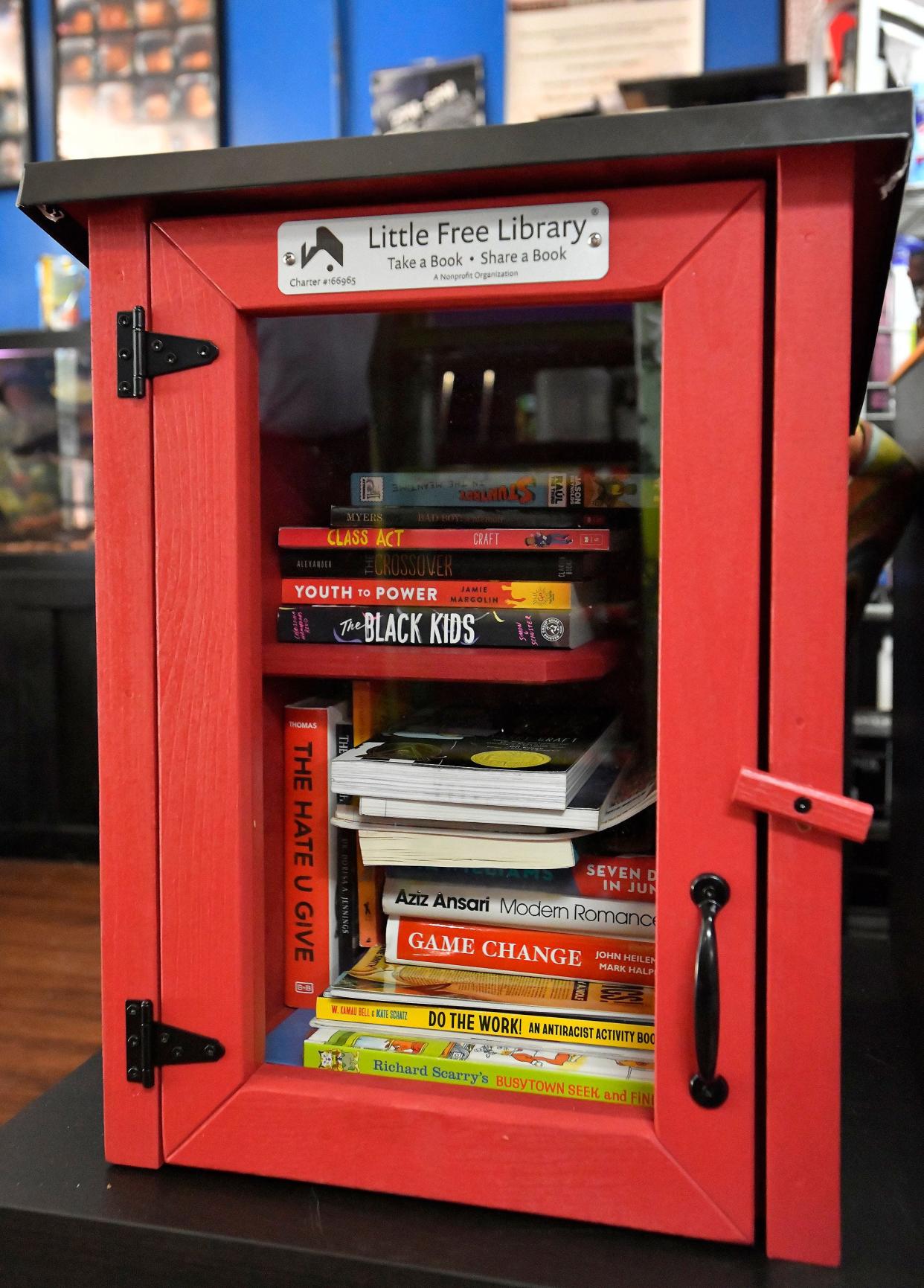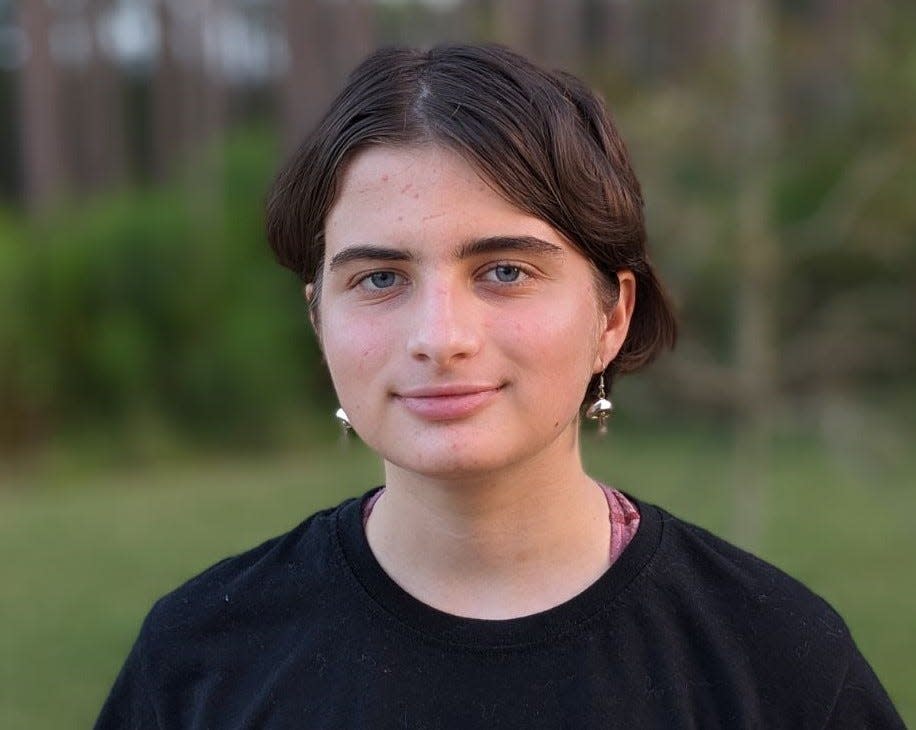St. Augustine teen: Don’t shelter Florida students from tough books and ideas

Generation upon generation of powerful people have gotten it into their heads that it is their responsibility to shield impressionable youth from controversy.
Every one of them thought they were right to do so. Every one of them considered their actions to be justified. However, to quote a high school student from Granbury, Texas: “No government … has ever banned books and banned information from its public and been remembered in history as the good guys.”
While the absoluteness of such a statement may not be entirely accurate, the general principle rings true. I firmly believe that attempting to shelter children from the realities of the world will nearly always backfire.
This is not to say that parents should be handing their first-graders copies of “Fifty Shades of Grey,” but rather that adults should give due credit to the critical thinking skills of younger people. For instance, let’s look at the extreme example mentioned above. Here are the facts:
“Fifty Shades of Grey” is a sexually explicit book that glorifies abusive relationships. For these reasons, it has been banned in several places. Certainly, it is not the type of thing you would want a first-grader to read. And here’s the truth of the matter: When this is explained in a respectful, non-condescending manner, most first-graders will agree.
As a rule, kids know what they are comfortable reading. And if they aren’t sure where their limits are, they test them and find out.
But despite what some people may claim, we all know that the vast majority of people aren’t handing out erotic novels to 8-year-olds. That’s not what the controversy is about when it comes to acceptable books. It’s about complicated ideas that authorities don’t think youth can face.
But the truth is — we’re already facing them.
Every day, America’s youth face school shootings, sexual abuse, police brutality and other things deemed “too mature” for us. The least we could get is the knowledge that we’re not alone and information on how to handle reality. Sheltering doesn’t protect us. It leaves us vulnerable.
For example, some people advocate for the historic preservation of Confederate statues, then argue that teaching kids about that history is teaching them to hate our country. These arguments are not only hypocritical; they’re lazy.
It doesn’t take a Ph.D. to explain America’s less-than-perfect history to a child: “Our ancestors did some bad things and they hurt people. We’re trying to be better than them. We still have some ways to go. But if we listen to people we’ve hurt and respect people we don’t understand, we can make the world better. I’ll try to be better than my parents and you’ll try to be better than me, because we can always do better and be kinder.”
That simplified explanation can lead into complex discussions and kids who will grow to have a better understanding of social issues.
I’ve always been an avid reader. I spent my younger years snatching up every piece of writing that caught my attention. In fifth grade, I read every book I could find on the Holocaust. In sixth grade, I found an article listing statistics on the suicide rates of transgender youth.
In seventh grade, I went down internet rabbit holes about torture methods used by government agencies. In eighth grade, I downloaded library books that addressed mental health issues without patronizing the reader.
Letters: Advocating for rights of Palestinians does not equate to endorsing Hamas
How did these experiences affect me? I didn’t gain a hatred for the German people; I gained a strong conviction that cultivating an “us versus them” mentality was the first step toward human rights violations.
I didn’t immediately form an opinion on every matter of trans rights that existed; I gained empathy for kids whose existence I hadn’t previously been aware of. I didn’t take up waterboarding as an after-school activity; I learned that the government is not always infallible.
I wasn’t traumatized by hearing about other people’s struggles; I gained insight on how to deal with my own.
Pushback on guidelines: At Jacksonville meeting, Black historians 'running to the fight' over state's school rules
People are so afraid that “the other side” will indoctrinate their children. But the first step to indoctrination is isolating a person from outside information. A young person with a balanced worldview is one who is exposed to all sides of an issue. To learn critical thinking, children and teenagers need to learn to engage with the world and ask tough questions.
Your kids won’t always agree with you and that’s fine. Discuss your thoughts with them and listen to their responses. Teach them how to respectfully handle disagreements about hard topics and teach by example. Learn from each other.
Communication — not blind restriction — is how we end up with a nation of socially aware young people equipped with emotional maturity and carefully considered beliefs.

Abrianna Dallas of St. Augustine is a winner of the Think for Yourself college scholarship essay contest sponsored by Let Grow, a nonprofit promoting childhood independence and resilience. She is currently a senior at Center Academy Jacksonville in Julington Creek.
This guest column is the opinion of the author and does not necessarily represent the views of the Times-Union. We welcome a diversity of opinions.
This article originally appeared on Florida Times-Union: Florida's restrictive laws only make things harder for students

